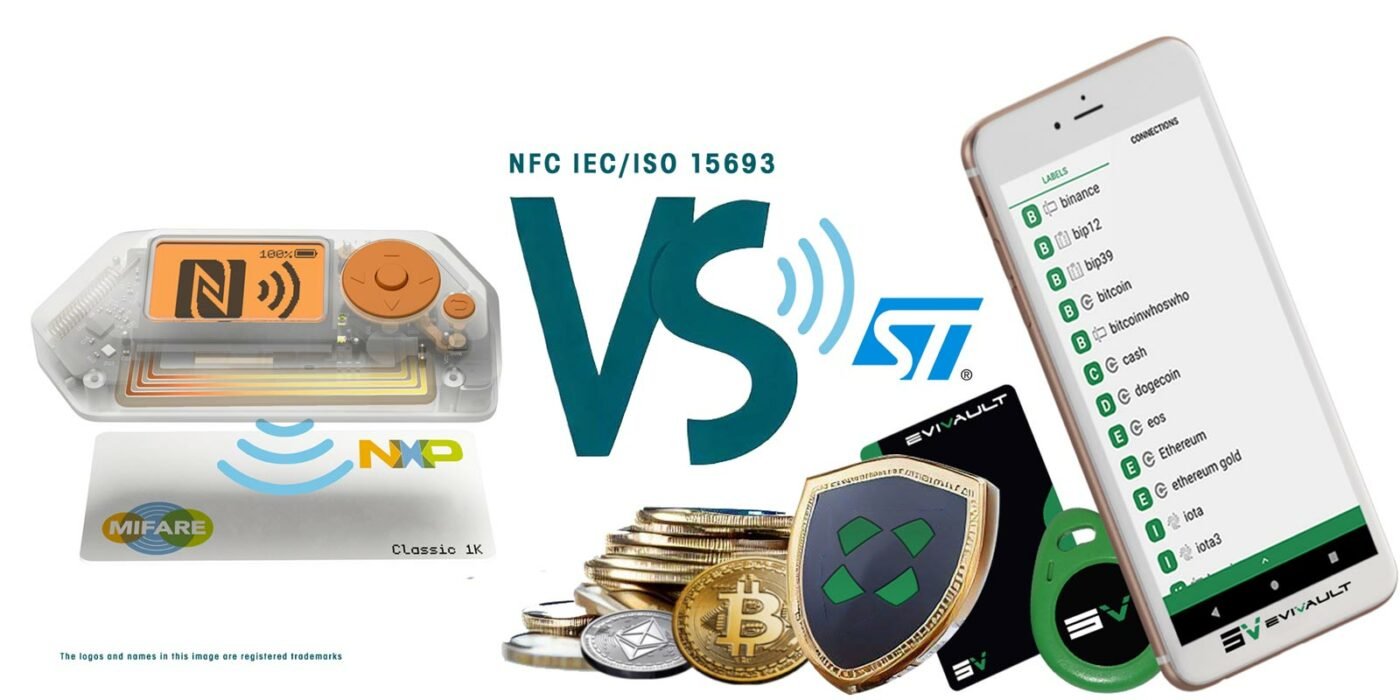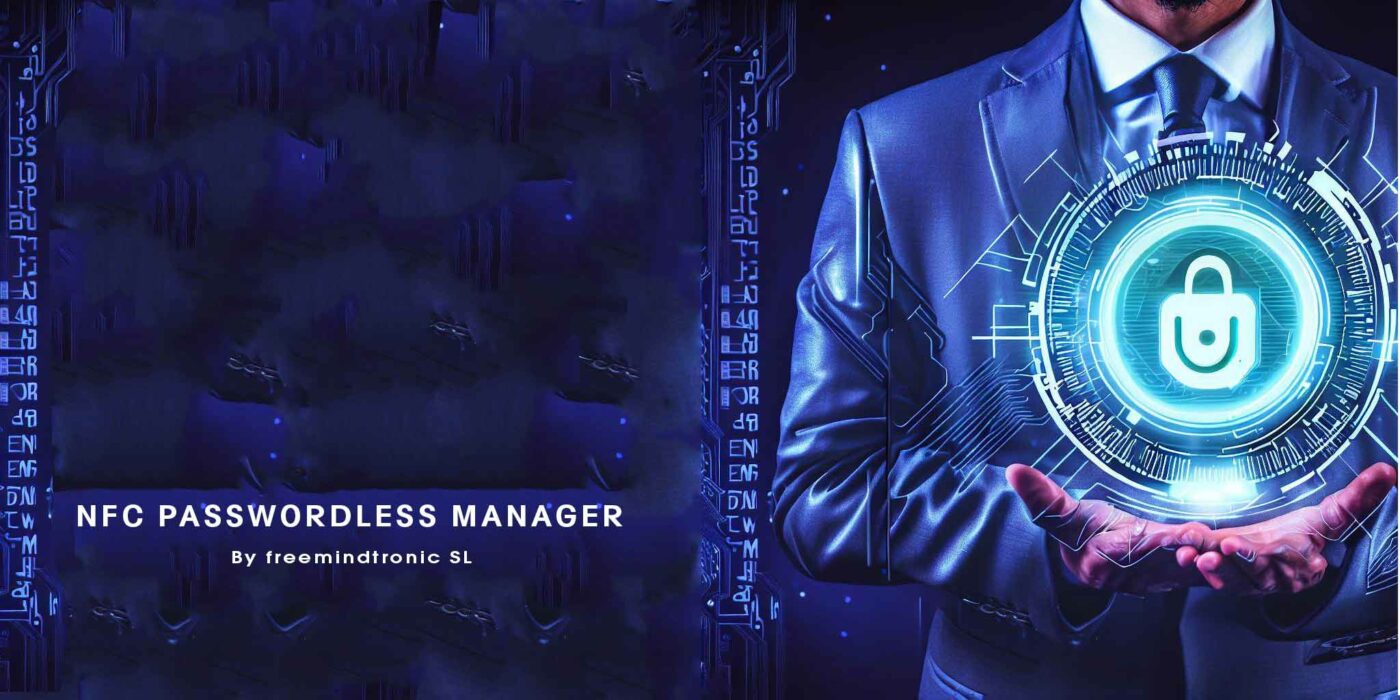Articles, Cyberculture, Digital Security, Technical News
Protect Meta Account Identity Theft with EviPass and EviOTP
Protect Meta Account identity theft by Jacques Gascuel This article will be updated with any new information on the topic, and readers are encouraged to leave comments or contact the author with any suggestions or additions.
How to Spot and Avoid Phishing Attacks on Meta
Have you ever wondered what would happen if someone hacked your Meta account and used it for malicious purposes? Identity theft is a serious threat that affects millions of internet users worldwide. It can harm your reputation, finances, privacy, and even your safety. That’s why it’s essential to protect your Meta account from identity theft.
Protecting Your Meta Account from Identity Theft
Meta is a family of products that includes Facebook, Instagram, Messenger, WhatsApp, Oculus, and more. These products allow you to connect with people, share content, play games, shop online, and explore new realities. However, they also store a lot of personal information that can be exploited by hackers if you don’t secure your account properly.
Identity theft of online accounts is a growing problem that affects many Meta users. Hackers use various techniques to illegally obtain user credentials and two-factor authentication information. This results in financial, legal, and psychological consequences for the victims, who find themselves deprived of their digital identity. In this article, we explain how to protect your Meta account from identity theft, with a focus on the security of your passwords and your two-factor authentication. We also present real testimonials of identity theft on Meta, which illustrate the seriousness of this problem and the importance of protecting yourself. Finally, we introduce you to an innovative solution that allows you to manage OTP tokens (One Time Password) securely and contactlessly thanks to an NFC device (Near Field Communication).
Creating Strong and Unique Passwords to Safeguard Your Meta Account
To enhance the security of your Meta account, it’s crucial to create strong and unique passwords. A strong password is the first line of defense against identity theft. Use a combination of uppercase and lowercase letters, numbers, and special characters. Avoid using obvious personal information, such as your name or date of birth. Furthermore, avoid reusing the same password on multiple accounts, as this makes it easier for hackers to gain unauthorized access. Consider using a secure password manager such as EviPass, offered by Freemindtronic, to store your passwords securely and regularly check their integrity.
Enhancing Meta Account Security with Two-Factor Authentication (2FA)
Enhancing the security of your Meta account is crucial, and enabling two-factor authentication (2FA) is an effective way to achieve that. In the security and login settings of your Meta account, you have access to a range of 2FA methods. Each method has its own advantages and considerations, empowering you to select the most suitable option for your needs.
Table: Comparison of Different 2FA Methods on Meta
| 2FA Method | Advantages | Disadvantages |
|---|---|---|
| Security Key | Highly secure, doesn’t require internet connection | Expensive, susceptible to loss or forgetfulness, requires USB or NFC port |
| Authentication App | More secure than SMS, compatible with multiple accounts | Risk of smartphone loss or theft, requires prior installation |
| SMS | Simple and quick | Risk of phone number hacking, reliance on mobile network |
| Authentication Applications | Enhanced security, generates secure 2FA codes | Risk of smartphone loss or theft |
| EviPass | Highly secure, contactless, compatible with multiple accounts, no prior installation required | Requires purchase of EviPass device |
The Ultimate Solution – EviPass and EviOTP for Meta Account Protection
EviPass, powered by Freemindtronic’s EviOTP technology, offers the best of both worlds with its PassCypher product. PassCypher combines two technologies: EviPass Hardware and/or Digital Manager, compatible with Freemindtronic’s NFC HSM devices. It also incorporates the EviOTP technology, a secret key manager for OTP and HOTP, enabling the generation of OTP codes. With PassCypher, you can experience highly secure and contactless 2FA. It eliminates the need for prior installation and provides a seamless user experience. By securely storing and generating OTP secret keys using EviOTP technology, PassCypher ensures end-to-end authentication. Please note that the PassCypher device, which includes EviPass and EviOTP technologies, needs to be purchased to utilize this comprehensive solution.
Being Vigilant Against Phishing Attacks to Secure Your Meta Account
Hackers often use phishing techniques to trick you into disclosing your credentials. Be vigilant about suspicious emails or messages asking for your credentials or personal information. Do not click on dubious links and always check the website address before entering your information. If you receive a suspicious message claiming to be from Meta, report it immediately.
Regularly Updating Security Information for Meta Account Protection
To maintain optimal security, it is important to update your security information regularly, such as your recovery email address and phone number. This information will allow you to regain access to your account in case of identity theft or password forgetfulness. Make sure you choose secure and easily accessible recovery information that only you have access to.
Implementing EviOTP for Enhanced Meta Account Security against Identity Theft
One innovative solution for securing your Meta account is EviOTP by Freemindtronic. EviOTP utilizes contactless technology and NFC devices to securely manage OTP tokens (One Time Passwords). By enabling two-factor authentication with EviOTP, you are required to provide an additional code along with your password when logging into your Meta account. This method offers optimal protection against phishing attacks and identity theft, as your OTP tokens are stored and encrypted within the NFC device, physically isolated from your computer and phone systems.
Table: Advantages and disadvantages 2FA
| 2FA Method | Pros | Cons |
|---|---|---|
| SMS | Simple and fast | Risk of hacking your phone number, dependence on mobile network |
| Authentication App | More secure than SMS, compatible with multiple accounts | Risk of losing or stealing your smartphone, requires prior installation |
| Security Key | Very secure, does not require internet connection | Expensive, easy to lose or forget, requires USB or NFC port |
| EviOTP | Very secure, contactless, compatible with multiple accounts, does not require prior installation | Requires purchasing the EviOTP device |
Considering the different options available, each 2FA method offers unique benefits and drawbacks. Security keys provide a high level of security but may be costly and prone to loss. Authentication apps offer increased security and compatibility, but the risk of smartphone theft exists. SMS codes are simple and fast but carry the risk of phone number hacking. Authentication applications like Google Authenticator or Microsoft Authenticator generate secure codes but are still susceptible to smartphone loss. Finally, EviOTP stands out as a highly secure, contactless option compatible with multiple accounts, although it requires purchasing the EviOTP device.
EviOTP – The Ultimate 2FA Solution
For the ultimate 2FA solution, EviOTP by Freemindtronic offers unmatched security and convenience. EviOTP combines contactless technology, compatibility with multiple accounts, and a seamless user experience. It eliminates the need for prior installation and configuration, making it ready to use right out of the box. By securely storing and generating OTP secret keys, EviOTP ensures end-to-end authentication. To benefit from EviOTP, please note that the EviOTP device must be purchased.
To enable two-factor authentication with Contactless OTP Manager, you must follow these steps:
- Download and install the PassCypher application embedding the EviPass technology and especially EviOTP on your NFC-compatible Android mobile device from the Google Play Store.
- Log in to your Meta account on a computer or mobile browser.
- Go to the security and login settings of your Meta account and click on “Use two-factor authentication”.
- Choose the option “Authentication application” and follow the instructions on the screen.
- Open the PassCypher application on your mobile device and bring your Contactless OTP Manager device close to the phone to scan the QR code displayed by Meta.
- Enter the six-digit code generated by Contactless OTP Manager in the “Security Code” field on Meta and click on “Next”.
- Save the recovery codes provided by Meta in case of loss or theft in your Contactless OTP Manager device that you also use to generate codes to authenticate yourself.
Beware of phishing attacks
Hackers often use phishing techniques to trick you into disclosing your credentials. Be vigilant about suspicious emails or messages asking for your credentials or personal information. Do not click on dubious links and always check the website address before entering your information. If you receive a suspicious message claiming to be from Meta, report it immediately.
Update your security information regularly
To maintain optimal security, it is important to update your security information regularly, such as your recovery email address and phone number. This information will allow you to regain access to your account in case of identity theft or password forgetfulness. Make sure you choose secure and easily accessible recovery information only by you.
Real Testimonials of Meta Account Identity Theft and Steps to Protect Yourself
Identity theft is a phenomenon that affects more and more internet users worldwide. According to a study by the Federal Trade Commission, consumers reported losing more than $5.8 billion to fraud in 2021, an increase of more than 70% over the previous year. Among the most common types of fraud are identity theft scams, which aim to steal the login information of users on various Meta products, such as Instagram, Facebook, Messenger, WhatsApp or Oculus. These information can then be used to harm the reputation, finances or privacy of the victims.
Finding real testimonials of identity theft on Meta is not always easy. Indeed, victims may feel ashamed of being fooled, afraid of the consequences or simply not know who to turn to report the problem or ask for help. That’s why we have gathered in this section some true and verified stories that illustrate the different possible scenarios of identity theft on Meta. These stories are presented in the form of small short paragraphs that are easy to read and explain how the victims discovered the hacking, how they reacted and what were the consequences.
We hope that these testimonials will help you to become aware of the risks associated with identity theft on Meta and to adopt good practices to protect your personal data online. If you are a victim or witness of identity theft, do not hesitate to report the problem to the competent authorities and ask for help from specialized services.
- Marie found June 6, 2021 Marie’s Instagram account was hacked by scammers. They tricked her into giving them her login information. They used her account to ask her followers for money. Marie reported the hack to Instagram and warned her contacts. She finally got her account and her 2,000 followers back. She learned to be more careful online.
- A woman from France had her Instagram account hacked by scammers who tried to extort money from her followers. She contacted Meta, but received no response. She then contacted a cybersecurity expert who helped her recover her account and her 6,000 followers.
- Muriel, a regular user of Meta, was a victim of identity theft on her personal account as well as on her Meta Business Manager account. Despite activating two-factor authentication, hackers managed to bypass security measures, leaving Muriel in a difficult situation. Unable to receive the necessary help from Meta, she shared her experience on social networks, hoping to find a contact within Meta who could help her solve this frustrating problem.
- In December 2021, Meta filed a lawsuit against the bad actors who allegedly created over 39,000 websites that resembled the login pages of Instagram, Facebook, Messenger, and WhatsApp. The defendants used these websites to deceive users and collect their login information. They also infringed Meta’s trademarks by using its logos and names on their fake pages.
- In February 2023, a couple was victim of a phishing scam that targeted META users. They received an email that seemed to come from the social network and asked them to confirm their credentials and password to avoid the closure of their account. When they clicked on the link, they were redirected to a fake login page that recorded their data. A few days later, they noticed that their account had been hacked and that fraudulent purchases had been made with their credit card linked to their META account.
- In October 2022, a woman discovered that her Instagram account had been hacked and that a scammer had used her identity to blackmail her followers. He sent them messages pretending to be her and asking for nude photos or money. He threatened to expose their private conversations or photos if they did not comply. The victim reported the hack to Instagram and warned her contacts about the scam.
- In October 2021, a man was sentenced to 18 months in prison with a suspended sentence for having impersonated several personalities on social networks, including the president of the French Republic Emmanuel Macron. He created fake META (ex-Facebook) accounts and sent private messages to internet users asking them for money or services. He also tried to extort personal information from journalists and politicians by pretending to be their relatives or collaborators.
- In February 2020, a woman discovered that her META account had been hacked and that a scammer had used her identity to trick her friends. He sent them messages pretending to be her and asking them for financial help for an emergency. He then asked them to send him PCS recharge codes (prepaid cards) that he could use to buy goods or services online. The victim filed a complaint and alerted her contacts about the hack.
- French case of Loïc: Loïc suffered identity theft on Meta for a grueling period of 17 years. Hackers opened numerous bank accounts in his name, took out consumer loans and used his information to benefit from social and tax benefits. Loïc recounted his ordeal during an interview with Olivier Delacroix on Europe 1 on January 15th, 2019. For years, he had to provide proof of identity and fight with administrations, banks and bailiffs to restore the truth and regain control of his digital identity.
- Case of Julie: Julie was a victim of identity theft on her Meta account by her ex-partner. He managed to access her account by cloning her SIM card, changing her security information and posting defamatory messages in her name. Julie quickly became aware of the situation and immediately filed a complaint with the competent authorities. She also contacted the Cybermalveillance.gouv.fr service to get help in the process of recovering her account and protecting her online reputation.
- Thomas’s Instagram account was hacked by a hacker who impersonated him and sent rude messages to his contacts. He managed to recover his account with the help of a cybersecurity expert.
- Benoît fell victim to a scam on WhatsApp. He received a message from a friend who asked him to lend him money urgently. He agreed and sent 500 euros by bank transfer. He realized too late that it was an impostor who had hacked his friend’s account.
- Clara was a victim of identity theft on her Facebook account. She received a notification that told her she had won a free trip and asked her to click on a link to claim it. She followed the link and entered her Facebook credentials. She realized too late that it was a trap to steal her data and use it to create fake profiles in her name.
- David was a victim of identity theft on his Oculus account. He received an email that told him he had been selected to test a new virtual reality game and asked him to download an app on his smartphone. He downloaded the app and scanned a QR code with his Oculus headset. He realized too late that it was a malicious software that had stolen his login information and used his account to buy games without his permission.
- Emma was a victim of identity theft on her Meta Workplace account. She received a message from a colleague who asked her to send him confidential documents related to an ongoing project. She trusted him and sent the documents by email. She realized too late that it was an impostor who had hacked her colleague’s account and used the documents to harm the company.
- Another real case of identity theft on Meta is that of Aaron Elekes. This film and TV producer had his Facebook account hacked by scammers who impersonated him and his contacts. Despite his efforts to recover his account, he did not receive the necessary help from Meta. He had to create several new accounts under his name, which caused him a lot of stress and frustration. This testimonial shows how important it is to protect your Meta account from identity theft.
- Other real examples of identity theft on Meta include:
- A company called Meta that accuses Meta (formerly Facebook) of unlawfully seizing its mark, name and identity.
- The risks associated with identity theft on Meta, such as the loss of personal data, the spread of false information, the contact scam or the infringement of copyright.
These real testimonials of identity theft on Meta illustrate the severity of the problem and highlight the importance of taking adequate security measures to protect your account. By following the tips mentioned above, such as creating strong passwords, enabling two-factor authentication and using innovative solutions like EviPass and EviOTP, you can enhance the security of your Meta account and significantly reduce the risks of identity theft.
Conclusion: Safeguard Your Meta Account from Identity Theft
Protecting your Meta account from identity theft is essential to preserve your online security. By following the recommended security measures, such as creating strong and unique passwords, enabling two-factor authentication and using innovative solutions like EviPass and EviOTP from Freemindtronic, you enhance the security of your account and reduce the risks of identity theft. Also be vigilant about phishing attempts and make sure to update your security information regularly. Use the tools and technologies at your disposal to enhance the security of your Meta account. By following these tips, you will be able to fully enjoy your experience on Meta with peace of mind.
Protect your digital identity and take the necessary steps to secure your Meta account now. Don’t let hackers steal your online identity. Be proactive in your approach to security and make protecting your account a top priority.
By adopting strong security measures and staying informed about the latest techniques used by hackers, you can minimize the risks of identity theft and protect your digital life on Meta. Make sure you implement the recommendations presented in this article and don’t hesitate to explore more advanced security solutions to further enhance the protection of your account. Your online security is in your hands, so act now to protect your Meta account from identity theft.
Protect your digital identity and take the necessary steps to secure your Meta account now. Don’t let hackers steal your online identity. Be proactive in your approach to security and make protecting your account a top priority.
By adopting strong security measures and staying informed about the latest techniques used by hackers, you can minimize the risks of identity theft and protect your digital life on Meta. Make sure you implement the recommendations presented in this article and don’t hesitate to explore more advanced security solutions to further enhance the protection of your account. Your online security is in your hands, so act now to protect your Meta account from identity theft.
Remember that securing your Meta account is not limited to these measures. Stay vigilant, educate yourself on the latest security practices and be proactive in protecting your digital identity. By taking these precautions, you can fully enjoy your experience on Meta safely and peacefully.
About Freemindtronic
Freemindtronic is a company specialized in digital security solutions based on NFC technology (Near Field Communication). Founded in 2017 by Jean-Marc Zanni, an expert in embedded systems engineering, Freemindtronic offers innovative products such as EviPass and EviOTP that allow users to manage their passwords and OTP tokens securely and contactlessly. Freemindtronic’s solutions are designed for individuals and professionals who want to protect their digital identity from cyberattacks and identity theft.






